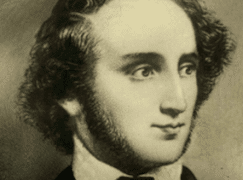I’d rather eat stone-cold porridge than listen to…
mainFrom the Lebrecht Album of the Week:
As a general rule, I would rather eat porridge that has been left to stand overnight than listen to music of the Romantic era being played on what is supposed to be a period instrument and is actually a modern replica, made the year before last. In this case, a reproduction of an 1830 Paris Pleyel that was manufactured by Paul McNulty in 2010. I mean, why….?
Then again, ask any composer if he or she wanted their music to be played on the best possible soundboard or on a washboard and you’ll get an answer far more conclusive than the UK’s recent Brexit vote. So why am I listening — and vastly enjoying —….
Read on here.
And here.

As well as here.





So if instrument makers of the time created “washboards” instead of “real instruments” does that not infer that the sound concept composers had in their mind is akin to what you might consider the level of “country music”? Think it that one through.
imply, not infer
I actually like cold porridge, and I make it with saffron, ginger juice, cardamom and orange blossom water, sometimes adding blueberries.
Meanwhile an excellent pianist like Brautigam can perhaps make any instrument sound well. Using an instrument with a sound that the composer might have been familiar with adds to the experience, but is not a condition. Said I ex cathedra.
There were ‘sound’ reasons why instruments developed towards a better sound, which could be projected in greater concert halls, during the 19C development of the performance culture. Along the way, some qualities were lost, but much was acquired. Around 1900 performing ideals were big, bigger, biggest, orchestras doubling their woodwinds when performing Beethoven, pianos getting larger and larger etc. etc. but interestingly, returning to a classical orchestra size in a not too big hall, for instance combining with a modern piano played by a stilistically alert soloist, can produce a result that sounds like ideal, with the best of past and present.
The ‘authentic’ ensembles specializing in baroque music can have extremely different characters… on one end of the scale, a dry and unmusical, sonic rendering of a stilted, wooden reading of the score, and on the other end, a passionate, ‘romanticized’ recreation of a supposed fanatic 18C sound, and everything in between, as varied as in the regular orchestral performance culture. Quite modernist in this field is the idea that ‘old music’ had hard fortes, wrapped-up cadenzas at the end of phrases, and no expression at all. A lot of HIP is typical 20C and not ‘authentic’.
Why? In order to try to bring the sound of the performance, and the realization of the score, closer to what the composer, the performer, and the audience would originally have heard.
I am not a pianist, but I have read about, and heard, things that cannot be done, or done properly, on a modern concert grand that 18th and 19th century composers wrote for and expected to do and hear. Ditto for other instruments.
There are reasons why technical improvements were made to instruments. Sometimes it was the incorporation of new materials and new technologies to make general improvements. Other times it was to adapt the instruments to new or changing needs or esthetics.
But it was a two-edged sword. A piano that was designed to project into a two thousand person hall might not be the best choice for a parlor that holds twenty. A piano that can stand up to Rachmaninoff may not be the best choice for Mendelssohn. And so forth.
True, but a really good grand piano if handled by a really good player with understanding of the period aesthetics, can play as lightly and subtly as on a fortepiano, but with the advantage of a better sound. For instance, music written for the harpsichord mostly sounds better if played on a piano with the toucher invoking the crispy harpsichord characteristic, but with the added advantage of dynamics which are not possible on a harpsichord. Modern instruments, on the whole, have a much broader range of expression than the older types.
Also, there is an element of abstraction in the older repertoire which makes it possible to transfer it to other mediums without loosing its musical ‘message’. A purely materialistic approach does an injustice to the music.
And music meant for small venues should never be played in giant halls, of course.